Filipinos let go of tradition, celebrate ‘loneliest’ All Souls’ Day amid pandemic
Philippine govt is closing all cemeteries during this year’s observance of All Souls’ Day

“Forgive your family. They must have their reasons for not visiting you today.”
Having taken care of the Catholic cemetery in the city of Dagupan, north of Manila, for two decades, Romulo Soriano already knows whose graves he should whisper these thoughts to on All Souls’ Day.
These are the unkempt tombs covered with vines without offerings of candles, flowers, and food.
“I talk to the dead so they won’t feel alone when their relatives are not there to visit them while others are surrounded by their loved ones,” said Romulo.
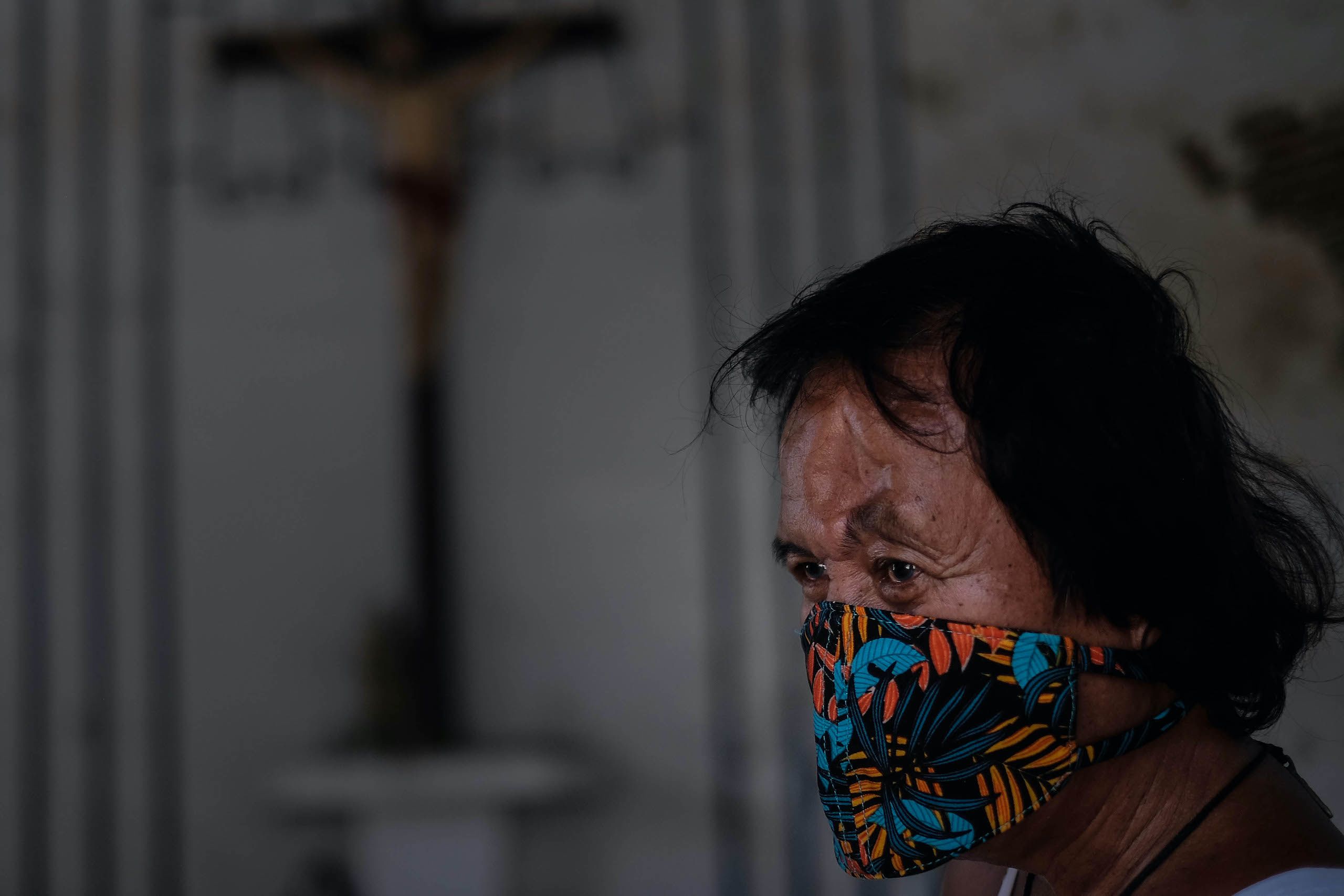
Romulo Soriano, cemetery caretaker, says this year can be the “loneliest” observance of All Souls’ Day. (Photo by Jojo Riñoza)
Romulo Soriano, cemetery caretaker, says this year can be the “loneliest” observance of All Souls’ Day. (Photo by Jojo Riñoza)
He will have to make much more effort this time in keeping a tradition he started many years ago. He will have to apologize to the thousands of tombs at the overcrowded cemetery.
The Philippine government has ordered the closure of all cemeteries starting Oct. 29 to Nov. 4 as a precautionary measure to help prevent the spread of the new coronavirus disease.
The silence in the cemetery this time is something Romulo has not yet heard. He thinks this All Souls’ Day will be the loneliest one he has to witness in years.
“It’s really sad. There will be no visitors. There will be no vendors. Even those who earn from cleaning the graves will have nothing in their wallets,” he said.
Foregoing tradition
The observance of All Saints’ Day and All Souls’ Day in the Philippines has always been a family affair.
Cemeteries are packed with families that gather around tombs to celebrate the lives of their departed loved ones. Aside from saying prayers, they bring food and share memories.
A week before the observance, people take time to scrub weathered tombs and repaint blurred epitaphs. Some even hire cleaners to carry the task.
Bus terminals are congested with passengers going home to their respective provinces.
Workers schedule their leaves from office next to these holidays to allow time for reunions and extend their stay with the family.
This year, due to the pandemic, people will have to set a different time for such activities while keeping the minimum health standards in mind.
Visitors will still be allowed to enter memorial parks, cemeteries, and columbaria at a 30 percent maximum capacity, but not on All Souls’ Day and All Saints’ Day.
With the prohibition on mass gatherings, even funeral rites have been limited to the immediate family of the deceased.
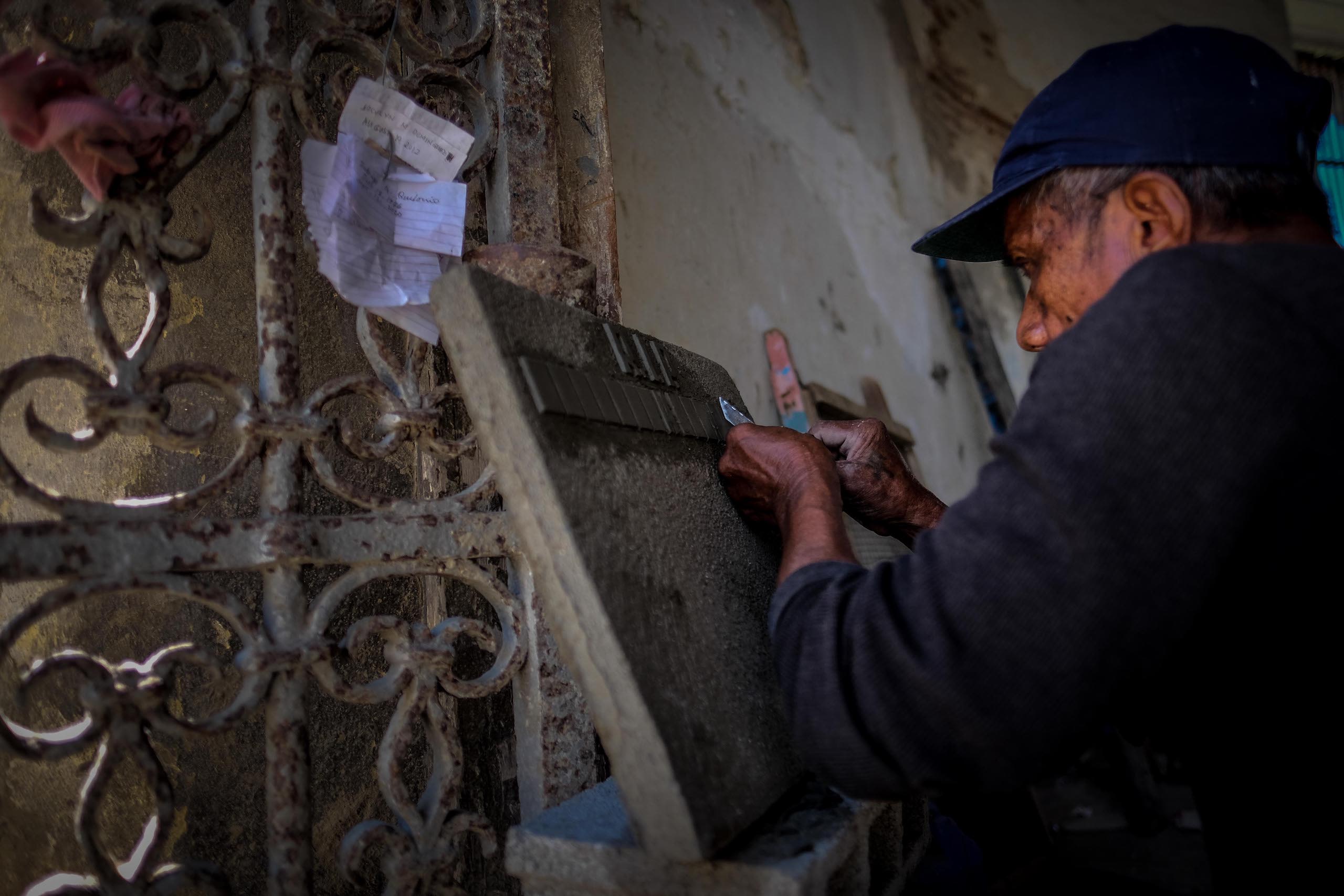
A worker prepares a tomb inside the chapel at the Catholic cemetery in Dagupan City. (Photo by Jojo Riñoza)
A worker prepares a tomb inside the chapel at the Catholic cemetery in Dagupan City. (Photo by Jojo Riñoza)
Leila Fernandez only had a month more to wait before she could finally carry in her arms her first grandchild.
On Sept. 17, her daughter-in-law gave birth to a child whose heart was no longer beating. Before they could even wrap their heads around losing their little loved one, they already had to prepare the baby’s tomb for burial in the morning.
The pandemic made it worse. Taking into consideration everyone’s safety, they decided not to have a wake.
“A one-day wake would have been enough time for the mother to see her firstborn. She can’t do that because she’s still in the hospital. She can’t even be with us to lay her to rest,” said Leila.
Only the father and the two grandmothers were in the church as the priest gave the final blessing. Their relatives, who could have easily taken a four-hour bus ride from Manila to Dagupan, were not there to hold their hands and grieve with them because of transport restrictions.
There was no funeral procession.
“My siblings wanted to travel here to be with us. The baby is also their first grandchild,” said Leila.
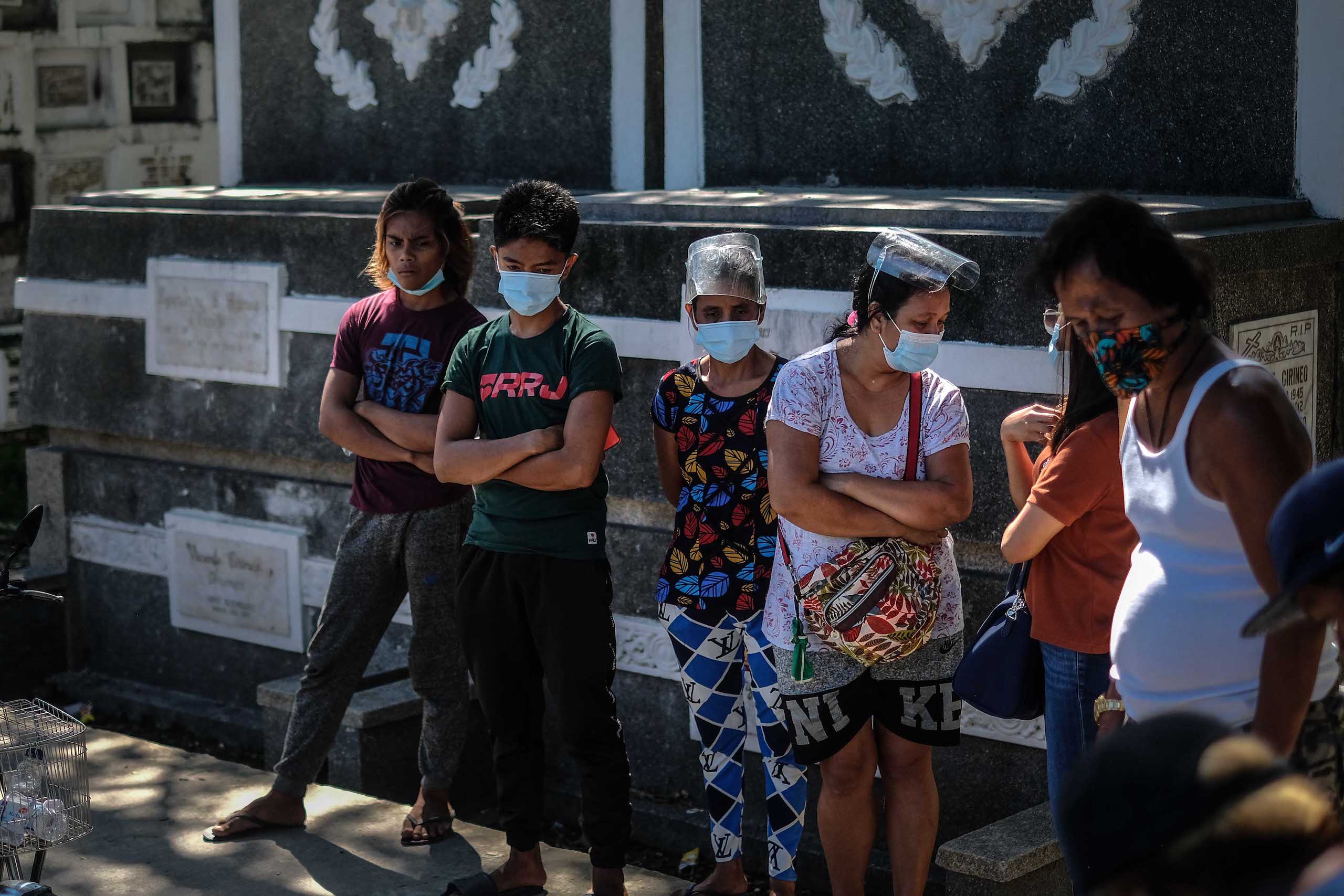
Leila Fernandez (3rd from left) watches as workers prepare the tomb for her unborn grandchild. (Photo by Jojo Riñoza)
Leila Fernandez (3rd from left) watches as workers prepare the tomb for her unborn grandchild. (Photo by Jojo Riñoza)
And if losing a loved one is not enough pain, the thought of not being able to visit her on All Souls’ Day added to their suffering.
“We will just go to church, light a candle, and offer her prayers on that day,” said Leila.
Romulo was with them during the burial to guide the family.
Having witnessed a lot of funerals, he knows how to kindly ask the grieving grandmother what traditions and superstitions they would want practiced, including where the remains of the baby will be facing so she could go into the right direction as she journeys on to heaven.
It was a simple gesture Romulo knew would somehow help ease the burden of the mourning family. He understood that the absence of their relatives made their grief a lot harder to handle. There were fewer shoulders to cry on.
“The family is somehow relieved when more relatives are here to empathize with them. The fewer the people, the heavier the situation seems to be,” said Romulo.
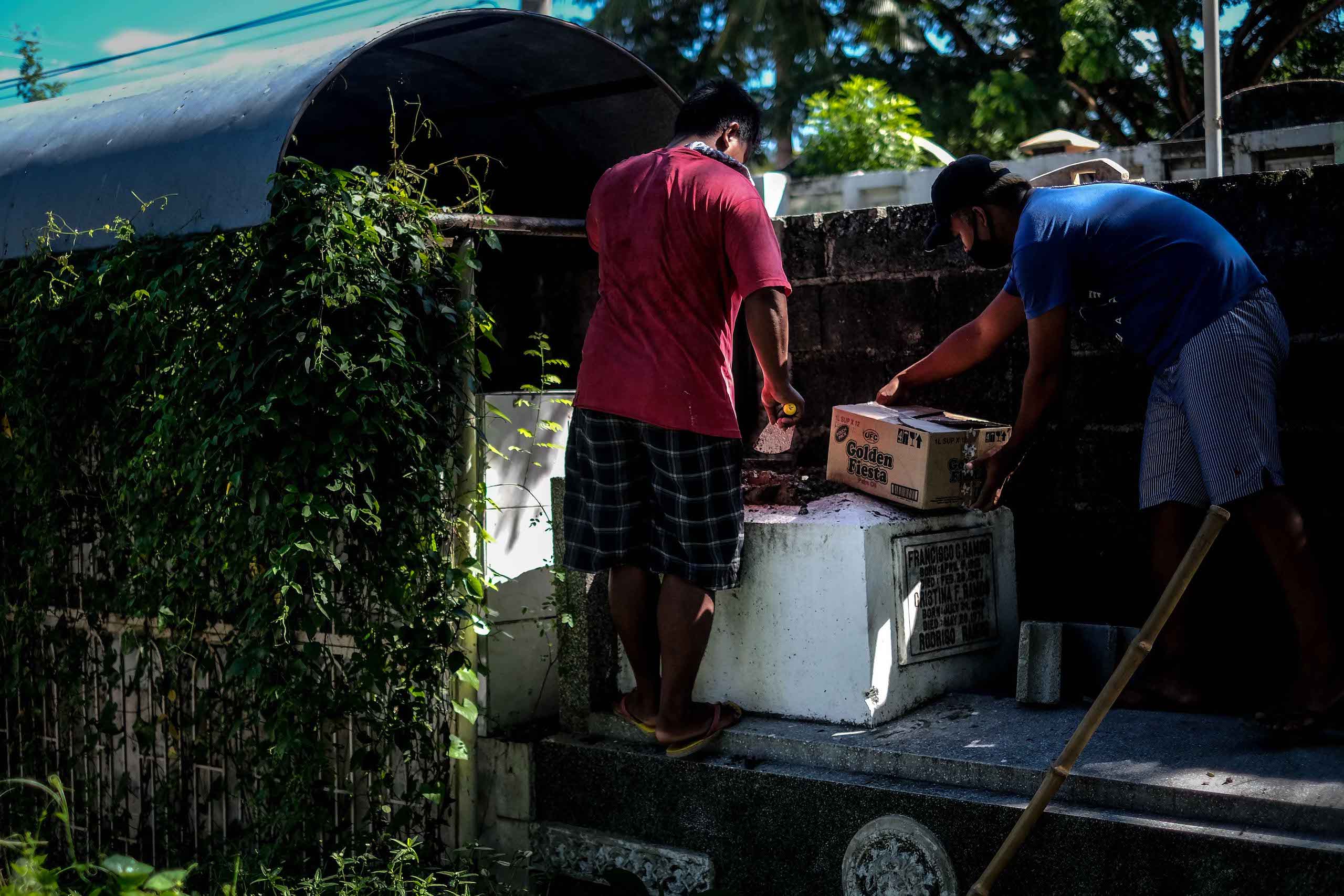
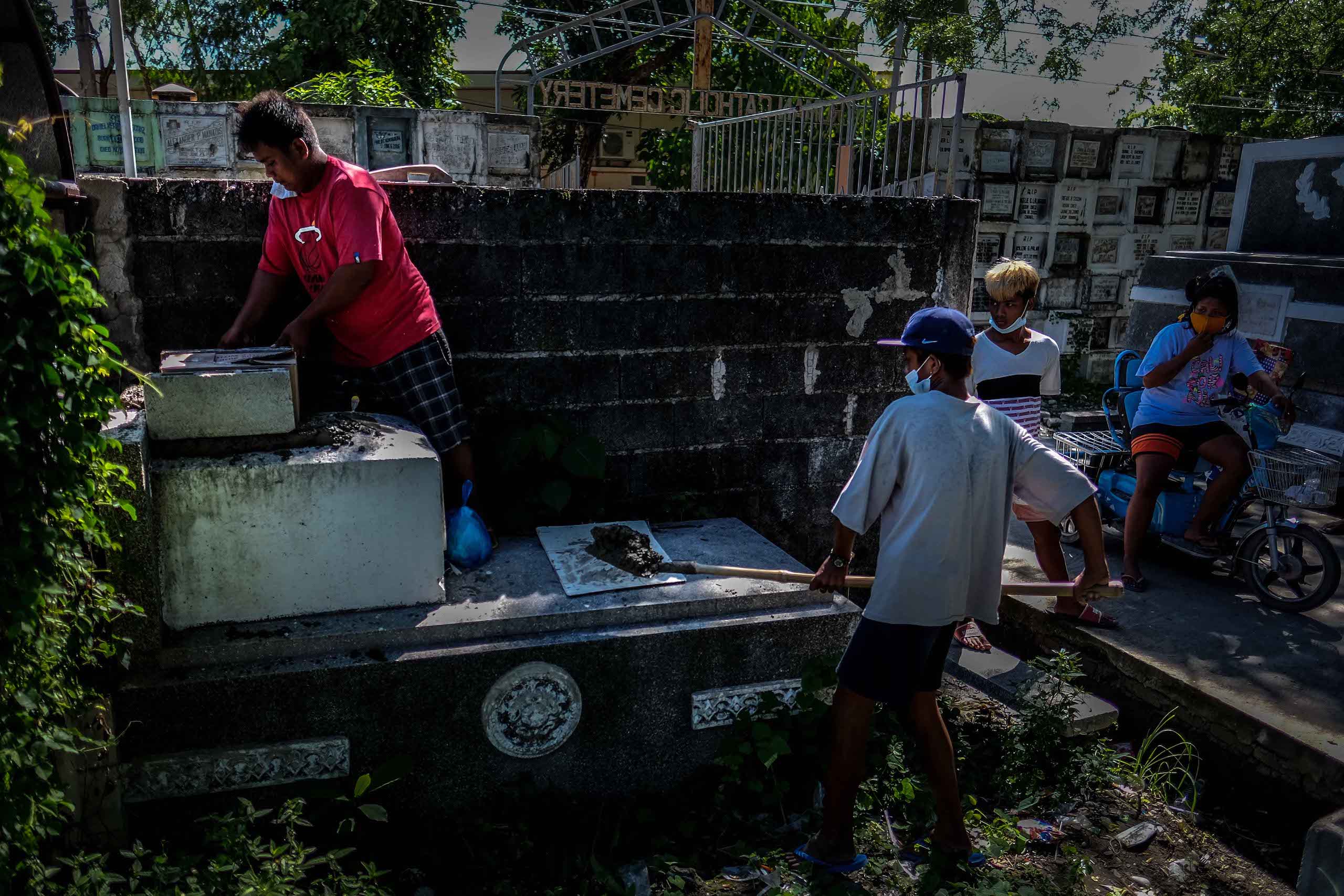
The soul of All Souls’ Day
“Remembering the lives of our loved ones is best expressed in prayers,” said Monsignor Oliver Mendoza of the Archdiocese of Lingayen-Dagupan.
He said that for the Catholic Church, the highest form of prayer is the Holy Mass.
“Nov.1 is for all the saints, meaning those who are already in heaven, and we asked their help through their prayers,” explained the priest.
“Nov. 2 is for the faithful departed in purgatory who need our prayers for them to enter into heaven,” he added.
Monsignor Mendoza said the faithful should not feel guilty about not being able to offer fresh flowers and watch over the graves.
“Flowers show our love for the deceased. We can do that even without going to the cemetery,” he said.
“What should come first now is our responsibility to the community because of the pandemic. Our social responsibility is more important than our personal and emotional attachment,” said the priest.
For the Church, the necessary restrictions might have prohibited long-practiced traditions, but the heart and soul of the observance stay.
There will always be ways in expressing love and honoring the memories of loved ones.
Text by Michelle Soriano | Photos by Jojo Rinoza
Published October 29, 2020
© Copyright MMXX LiCAS.news
